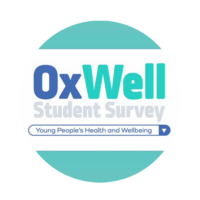ACAMH Website Content Types
-

Common Elements in Treatments for Youth Suicide Attempts and Self-harm
(TRIGGER WARNING: Please be aware that this podcast explores themes around the topics of self-harm and suicide.)
In this Papers Podcast, Dr. Jocelyn Meza discusses her co-authored JCPP paper ‘Practitioner Review: Common elements in treatments for youth suicide attempts and self-harm – a practitioner review based on review of treatment elements associated with intervention benefits’. Jocelyn is the lead author.
Read more -

Little Treatments, BIG effects: Conversation on Single-Session Interventions – recording
Delegates only – Dr. Jessica Schleider’s, Associate Professor of Medical Social Sciences, Northwestern University, Chicago, led this session on Single-Session Interventions. SSIs integrate cutting-edge psychological science, lived experience narratives and practical self-help activities to introduce a new type of therapeutic experience to audiences worldwide.
Read more -

Little Treatments, BIG effects: Conversation on Single-Session Interventions – recording
Members only – Dr. Jessica Schleider’s, Associate Professor of Medical Social Sciences, Northwestern University, Chicago, led this session on Single-Session Interventions. SSIs integrate cutting-edge psychological science, lived experience narratives and practical self-help activities to introduce a new type of therapeutic experience to audiences worldwide.
Read more -

JCPP Editorial: Volume 64, Issue 10, October 2023
Editorial: “Paradigm ‘flipping’ to reinvigorate translational science: Outlining a neurodevelopmental science framework from a ‘neurodiversity’ perspective” by Edmund J. S. Sonuga-Barke
Read more -

Preventing Anxiety in the Children of Anxious Parents
In this Papers Podcast, Dr. Fiona Challacombe discusses her co-authored CAMH journal paper ‘Preventing anxiety in the children of anxious parents – feasibility of a brief, online, group intervention for parents of one- to three-year-olds’.
Read more -

Creating Hope Through Action – Suicide Prevention, A Priority For All
World Suicide Prevention Day (10 September) is a fantastic opportunity to encourage an understanding and increase awareness of suicide prevention and make suicide prevention a priority. We encourage you to explore the learning opportunities available on our website and do please share with your networks and colleagues.
Read more -

FASD (Fetal Alcohol Spectrum Disorder): Understanding the Diagnosis
In this ‘In Conversation’ podcast, Sandra Butcher and Rachel Jackson provide insight into Fetal Alcohol Spectrum Disorder (FASD).
In the United Kingdom, September is celebrated as FASD Awareness Month, with 9 September internationally recognised as International FASD Day.
Read more -

Research Review: Sustained improvements by behavioural parent training for children with attention-deficit/hyperactivity disorder: A meta-analytic review of longer-term child and parental outcomes
Open Access paper from the JCPP – ‘This meta-analytic review investigated longer-term (i.e., more than 2 months post-intervention) child and parental outcomes of behavioural parent training for children with ADHD.’ Dominique P. A. Doffer (pic) et al.
Read more -

Networks of Care: Insights from the OxWell Student Survey
The ‘Insights from the Oxwell Student Survey’ series is a new mini-in conversation series that will explore the OxWell study and the impact of its findings for parents, teachers, policymakers and mental health professionals.
In this episode, Professor Mina Fazel, Dr. Emma Soneson, and Dr. Simon White will provide insight into what the Oxwell Student Survey is, discuss some key findings, and explore the implications of these findings for networks of care.
Read more -

Associations of screen use with cognitive development in early childhood: the ELFE birth cohort
Open Access paper from the JCPP – ‘Our study found weak associations of screen use with cognition after controlling for sociodemographic and children’s birth factors and lifestyle confounders, and suggests that the context of screen use matters, not solely screen time, in children’s cognitive development.’ Shuai Yang et al.
Read more